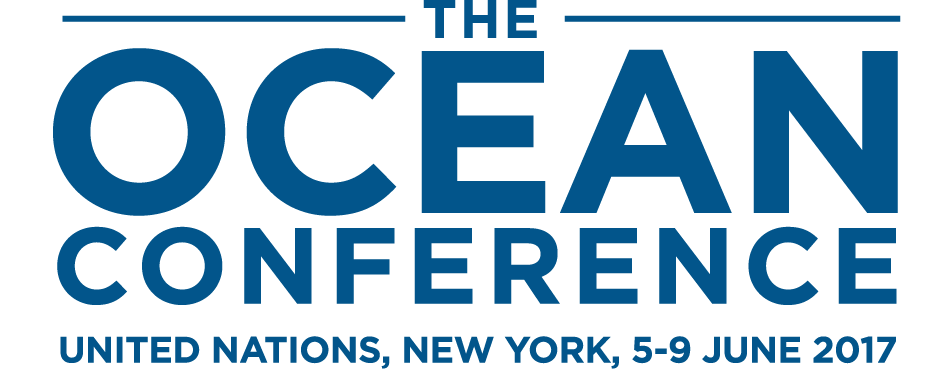Daily report for 4 July 2018
22nd Meeting of the Subsidiary Body on Scientific, Technical and Technological Advice (SBSTTA 22) and 2nd Meeting of the Subsidiary Body on Implementation (SBI 2) of the Convention on Biological Diversity (CBD)
SBSTTA 22 continued Wednesday in Montreal, where delegates discussed the following agenda items:
- Biodiversity and climate change: ecosystem-based approaches to climate change adaptation and disaster risk reduction;
- Invasive alien species (IAS);
- Conservation and sustainable use of pollinators; and
- The second work programme of the Intergovernmental Platform on Biodiversity and Ecosystem Services (IPBES).
A contact group on risk assessment and risk management of living modified organisms (LMOs) met during the lunch break, and contact groups on digital sequence information, and marine and coastal biodiversity met in the evening.
Biodiversity and Climate Change
The Secretariat introduced relevant documents (CBD/SBSTTA/22/8 and INF/1).
Many parties welcomed the proposed voluntary guidelines for the design and effective implementation of ecosystem-based approaches to climate change adaptation and disaster risk reduction. The MALDIVES, SWEDEN, and the EU supported adopting the voluntary guidelines; CAMBODIA suggested “endorsing” them.
NORWAY, GERMANY, BELGIUM, PERU, CANADA, JAMAICA, and FINLAND urged enhancing synergies between the CBD and the UN Framework Convention on Climate Change (UNFCCC). NEW ZEALAND proposed strengthening the recognition of the UNFCCC as the primary intergovernmental body for climate policy. MALAYSIA stressed that the voluntary guidelines should not prejudge negotiations in the UNFCCC.
NORWAY, FRANCE, and GERMANY suggested encouraging parties to take biodiversity concerns into account when updating their nationally determined contributions under the UNFCCC. BELGIUM, MEXICO, INDIA, SWITZERLAND, and PERU suggested integrating biodiversity in climate change national strategies. GERMANY, CANADA, the UK, and IUCN called for integrating climate change concerns into National Biodiversity Strategies and Action Plans.
NORWAY, SWITZERLAND, and CANADA urged addressing the biodiversity-climate change nexus in preparing the post-2020 biodiversity framework.
Many developing countries highlighted the need for capacity building, including for small island developing states.
SWEDEN and the UK suggested endorsing the key messages of the IPBES land degradation assessment. MALAWI and BOLIVIA emphasized the important role of women, youth, and, with THE GAMBIA, ETHIOPIA, and UGANDA, of indigenous peoples and local communities (IPLCs). FRANCE said that full and effective participation should be expanded to cover all people.
The MALDIVES, JAMAICA, CUBA, and ANTIGUA AND BARBUDA noted the importance of keeping the global average temperature rise below 1.5°C. BRAZIL stressed that it was too soon to recommend review of the IPCC Special Report on 1.5°C, as the report has not yet been adopted.
FRANCE urged cooperation on wetlands. ITALY noted evidence that ecosystem-based approaches constitute effective and cost-efficient measures for climate change adaptation and mitigation.
ARGENTINA underscored the voluntary character of the guidelines, noting they should be adaptable to national circumstances. UGANDA suggested “encouraging” rather than “inviting” parties to make use of the voluntary guidelines.
The NETHERLANDS suggested that ecosystem-based approaches and eco-disaster risk reduction “should avoid” adverse impacts to biodiversity and people. BOLIVIA emphasized that ecosystems don’t only provide services, but also perform non-economic functions.
A conference room paper will be prepared.
Invasive Alien Species
The Secretariat introduced the documents (CBD/SBSTTA/22/9, INF/9, INF/22, INF/29, INF/38, and CBD/IAS/WS/2017/1/2).
MEXICO, NORWAY, INDIA, CANADA, and PERU supported exploring the possibility of a global system of classification and labelling pertinent to IAS, with CANADA emphasizing it needs to be based on sound science.
MEXICO, MOROCCO, INDIA, GUATEMALA, the UK, COSTA RICA, and PERU called for consistent use of the terminology “invasive alien species” rather than “alien organisms.”
MEXICO and BOLIVIA highlighted the need to determine the socio-economic repercussions of the introduction of IAS, especially on IPLCs.
Pointing to the upcoming IPBES thematic assessment on IAS, SWEDEN considered the establishment of an Ad Hoc Technical Expert Group (AHTEG) on this issue premature and, with FINLAND, INDIA, SWITZERLAND, GERMANY, ITALY, the EU, and SOUTH AFRICA proposed instead to establish an online forum. FSM, for Cook Islands, Palau, Solomon Islands, and Tonga, cautioned against an online forum, citing internet connectivity as a challenge. The UK cautioned against duplication of work, noting some of the proposed tasks would be better addressed by IPBES.
NORWAY, INDONESIA, and NEW ZEALAND supported establishing an AHTEG. IIFB called for full and effective participation of IPLCs in the AHTEG, highlighting that IPLCs rely on some IAS as food sources.
Many parties emphasized the need for capacity building and technology transfer and stressed the need to promote coordination and exchange of information between institutions.
FINLAND highlighted the need to focus on key regions, including the Arctic, and, with the UK and PERU, stressed the role of the private sector. EGYPT identified a lack of awareness on the risks associated with IAS as a central challenge. BELGIUM highlighted the precautionary approach, noting that the most efficient way to control IAS is to prevent their introduction.
SWITZERLAND, FINLAND, AUSTRALIA, and CANADA emphasized the voluntary nature of the guidelines. NIGER noted that binding guidelines may be developed in the future.
NORWAY, BELGIUM, MEXICO, and SOUTH AFRICA welcomed the forthcoming IPBES thematic assessment on IAS. INDIA called for referencing the assessment in the recommendations.
COSTA RICA, supported by PERU, proposed encouraging parties to use emerging technologies such as genetic barcoding.
ISLAND CONSERVATION urged parties to consider adding an emphasis on islands, given the disproportionately large effect of IAS on them.
Conservation and Sustainable Use of Pollinators
The Secretariat introduced relevant documents (CBD/SBSTTA/22/10 and INF/19-21).
Many supported the updated Plan of Action 2018-2030 for the international initiative on the conservation and sustainable use of pollinators. BRAZIL, MEXICO, INDONESIA, and GUATEMALA emphasized the conservation of native pollinators in their natural environment. NORWAY and FINLAND highlighted the decline in wild pollinators.
MEXICO and PERU suggested the development of good practice guidelines for: using chemicals in agricultural crops; promoting crop rotation; monitoring native pollinators; and, with INDONESIA, environmental education programmes.
SWITZERLAND and BELGIUM proposed underscoring the importance of the IPBES assessment on pollination, pollinators and food production.
The Philippines, for ASEAN, and Turkmenistan, for CEE, highlighted regional cooperation.
MOROCCO stressed the need for additional multi-disciplinary research. INDONESIA lamented lack of awareness of the importance of pollinators, noting the need to prohibit the movement of endemic colonies outside their natural habitats and to study the impact of climate change on pollinators. GUATEMALA suggested promoting research on least studied pollinators.
FRANCE called for the recommendations to mention other causes of pollinator decline in addition to IAS. CANADA and INDONESIA expressed concerns over the references to trade in managed pollinators, pointing to the risk of introducing IAS.
INDIA called for referencing the relevant IPBES thematic assessment in the recommendations, and, with the EU and SOUTH AFRICA, said its conclusions should be taken into account in developing the post-2020 biodiversity framework.
MALAWI and COSTA RICA stressed the need for support to generate national- and local-level data on the status of pollinators. FINLAND stressed the role of the private sector in the conservation of pollinators. The DOMINICAN REPUBLIC emphasized the importance of risk analysis.
BOLIVIA opposed deleting a paragraph on genetically modified crops, and, with PERU, stressed the relevance of pollinators for IPLCs. PERU recommended that the action plan should be carried out in coordination with agriculture and development ministries.
IUCN proposed reference to the recent Worldwide Integrated Assessment on Systemic Insecticides. IIFB proposed textual additions on, inter alia, the preservation of cultural resources.
A conference room paper will be prepared.
Second IPBES Work Programme
The Secretariat introduced the relevant document (CBD/SBSTTA/22/11). Anne Larigauderie, IPBES Executive Secretary, stressed the rolling nature of the second work programme, and focused on two main workstreams: one on the strategic framework focusing on processes, institutional arrangements, integration of work, and resource mobilization; and the other on potential topics to be addressed in future IPBES activities.
Many parties supported the draft recommendations, expressed readiness to produce suggestions for the second IPBES work programme, and highlighted the need to ensure that IPBES’ work informs the development of the post-2020 biodiversity framework.
SOUTH AFRICA, NEW ZEALAND, and the EU welcomed the rolling work programme to allow greater flexibility. The NETHERLANDS proposed a two-fold approach for the work programme, which allows for flexibility to respond to emerging policy needs, while providing a long-term structure that allows research organizations to effectively contribute to the process.
INDIA, NORWAY, CANADA, EGYPT, COSTA RICA, and the UK stressed the need to streamline the extensive list of suggestions and focus relevant requests on critical issues. MOLDOVA said that the suggested prioritization of elements requires additional discussion, including at the regional level.
MEXICO noted that the assessments’ findings need to be user-friendly to assist decision making. He focused on pollution in soils and the marine environment, and urbanization.
SWITZERLAND proposed regular global assessment cycles of six to ten years. NORWAY and IIFB emphasized the need for future assessments to consider nexus issues. JAPAN requested clarifications on the rationale for requesting a dedicated assessment of the nexus of “biodiversity, food and water, agriculture and health and nutrition.” NORWAY further suggested a joint assessment by IPCC and IPBES on climate change and biodiversity, as well as focusing, inter alia, on production and consumption patterns, and recycling.
FINLAND noted that cooperation between different initiatives should be maximized to avoid duplication of work. The UK requested further consideration of the issue prior to COP15, noting no new assessments will be taken up by IPBES in the next two years.
The EU highlighted the platform’s role in mobilizing a multidisciplinary knowledge base. SOUTH AFRICA stressed the need to close knowledge and data gaps identified in the first work programme. FRANCE supported the establishment of a procedure for the CBD to systematically take into account IPBES’ findings.
A conference room paper will be prepared.
Contact Groups
The contact group on risk assessment continued during the lunch break. Delegates addressed, inter alia: whether case-by-case risk assessments should be explicitly mentioned; issues around the free prior informed consent of IPLCs in cases of release of LMOs containing engineered gene drives in their lands and territories; and the process for identifying and prioritizing specific issues of risk assessment of LMOs.
The contact group on marine and coastal biodiversity met in the evening and discussed a non-paper released earlier in the day. While the chapeau was not controversial, delegates had intense debates about modalities for modifying ecologically or biologically significant marine areas descriptions, such as which actors can propose considering such modifications, given issues of national sovereignty, and what the mandate of the informal advisory group would be in this process.
The contact group on digital sequence information continued its work in the evening on the basis of a non-paper produced by the Co-Chairs. Delegates addressed inter alia: issues of terminology around “digital sequence information,” noting that the term is currently used as a placeholder; and whether a number of Convention articles and decisions should be referenced in the recommendation.
Discussions continued into the night.
In the Corridors
With SBSTTA 22 reaching its halfway point, deliberations heated up in contact groups. Most delegates expressed satisfaction with progress made, noting the spirit of compromise is prevailing, and technical and scientific information is exchanged, thereby fulfilling the SBSTTA’s role. Others, however, seemed concerned, pointing to multiple options and bracketed language in the draft recommendations on risk assessment and risk management of LMOs, and different understandings on digital sequence information and synthetic biology. With contact groups continuing late into the night, a seasoned delegate was adamant that the final verdict on the meeting’s success is still in question, expressing hope for a solid outcome to enable much needed decision making at COP 14.
-->
Specific funding for coverage of the Ocean Conference - June 2017, has been provided by the
XXX, XXX, and XXX
-->
IISD Reporting Services is a division of the International Institute for Sustainable Development (IISD).
Earth Negotiations Bulletin (ENB), ENB+, and Knowledge Management for Sustainable Development
are branches within IISD Reporting Services.
© 1992-2018, IISD Reporting Services. All rights reserved.







